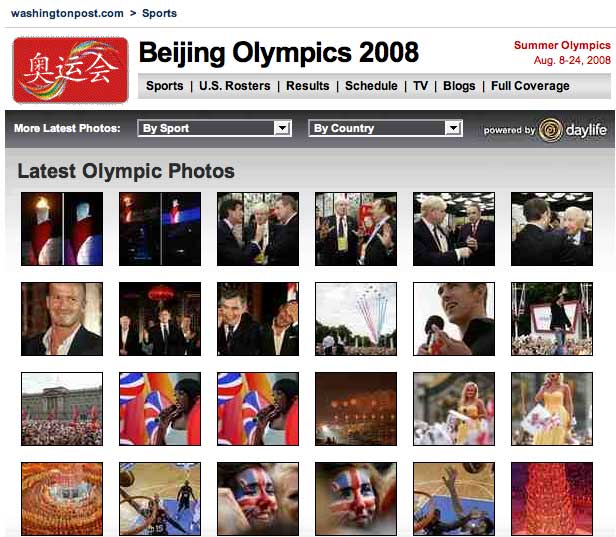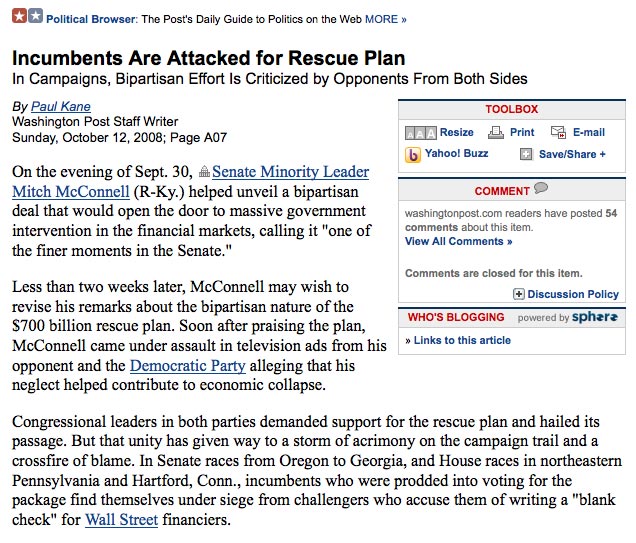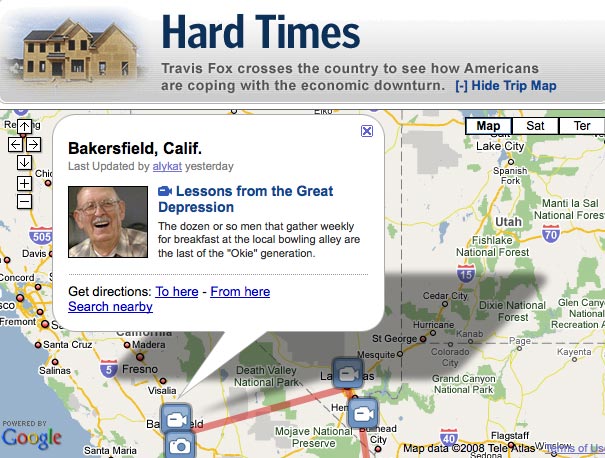The software engineering company behind Sky News’ recent online revamp, Daylife, has launched a new product aimed at online news publishers.
Sky used Daylife’s products to create topic pages of related multimedia content called ‘in depth’ pages.
The new Daylife Enterprise API will similarly let publishers re-purpose blog posts, text, data and audio-visual content in new ways online.
How does it do this? The service will collect this content and then create feeds which the publisher can put to use a variety of ways – as per their request.
 For example – the Enterprise API was trialled by the Washington Post to create picture galleries from the Beijing Olympics – searchable by sport and country – and to accompany its US presidential campaign coverage.
For example – the Enterprise API was trialled by the Washington Post to create picture galleries from the Beijing Olympics – searchable by sport and country – and to accompany its US presidential campaign coverage.
Daylife took all the incoming photos from Post photographers around these subjects and made them available to the paper as an API, ready for use to create new pages on its website.
Utilising existing content in this way can be a success in terms of web traffic – making sites a more attractive prospect for advertisers, says Daylife CEO Upendra Shardanand.
As part of the product, publishers can make these content feeds open to the public and third-party developers – a feature which Shardanand hopes will lead to more collaboration on news content between publishers and users.
“In terms of e-commerce and advertising there’s been so much innovation in the last 10 years online, in comparison there’s not been so much in news,” he told Journalism.co.uk.
“How do you innovate if you don’t do software? I don’t know what the next best concept is but a service like ours can be shared.”
Publishers should not dismiss outsourcing this work, says Shardanand, after all it’s not their job and with the amount of content they have available would be extremely time consuming – the company has over 200 machines running to process the content. It’s not for free, but licences are decided on a customer-by-customer basis.
Instead, he told us, the aim is to get the most value out of the content that publishers are already producing for both online and other editions – such as the photos taken by WaPo staff – by doing the backend work for them.
Crucial to the success of the project will be the say that publishers have over what is done with their content – something which Shardanand is keenly aware of.
“These have to be content portals that are still customised and match your brand and voice,” he says.
“It wouldn’t work if the editors couldn’t do exactly what they want. Advertisers wouldn’t value it either.”


 For example – the Enterprise API was trialled by the Washington Post to create
For example – the Enterprise API was trialled by the Washington Post to create